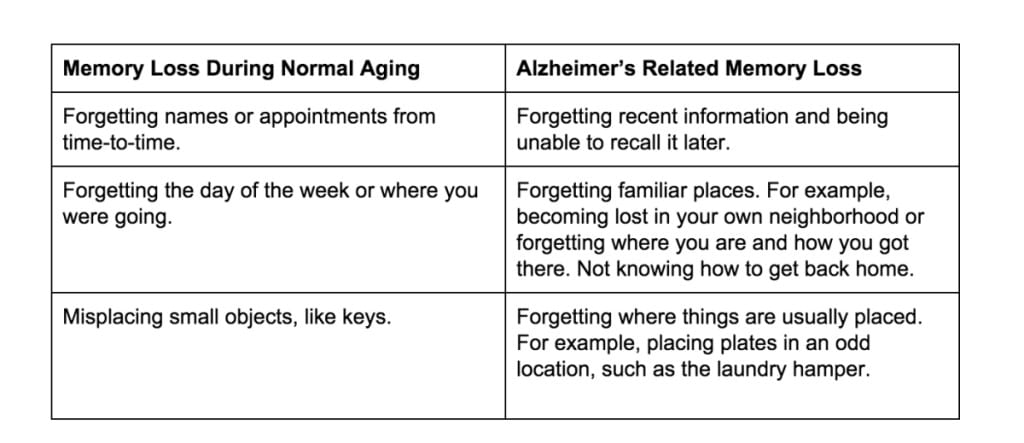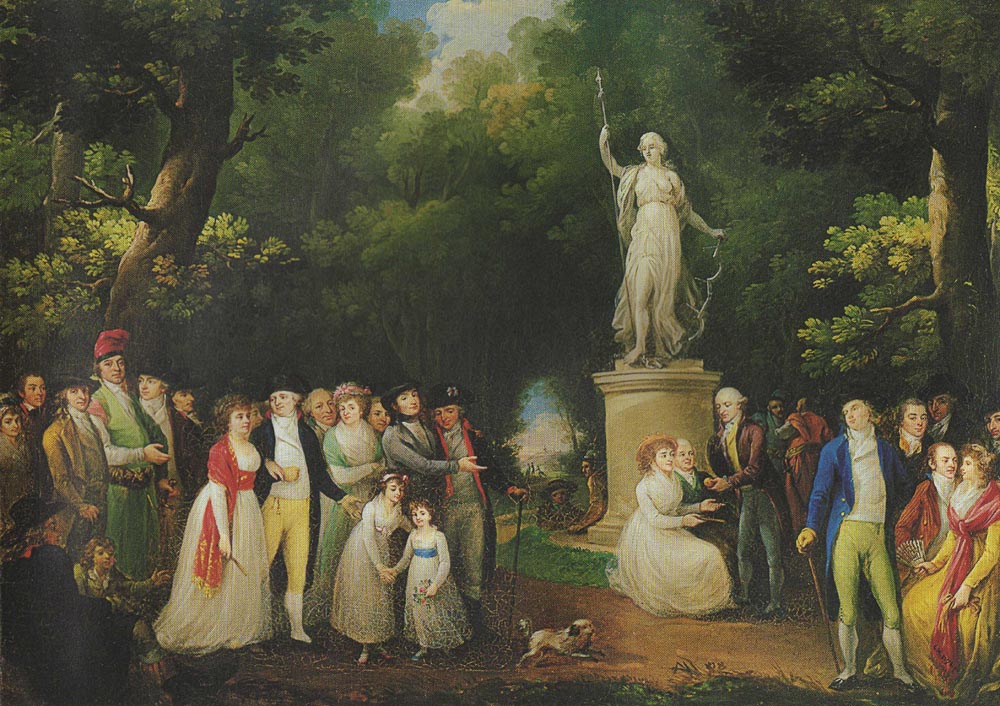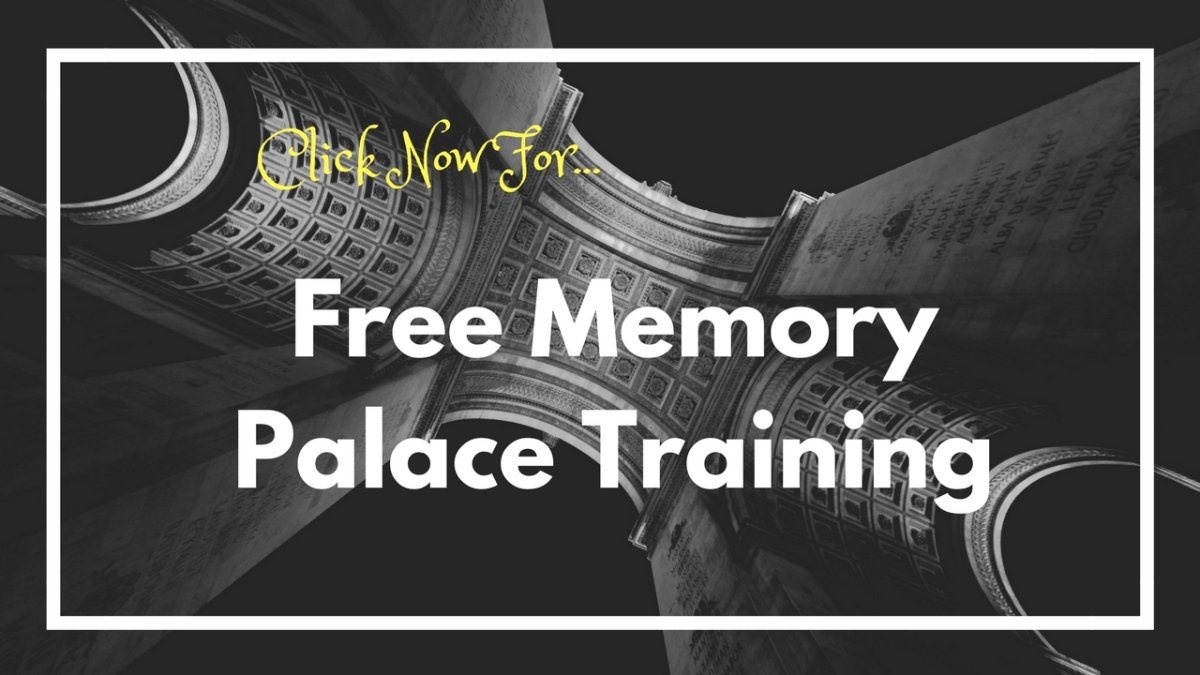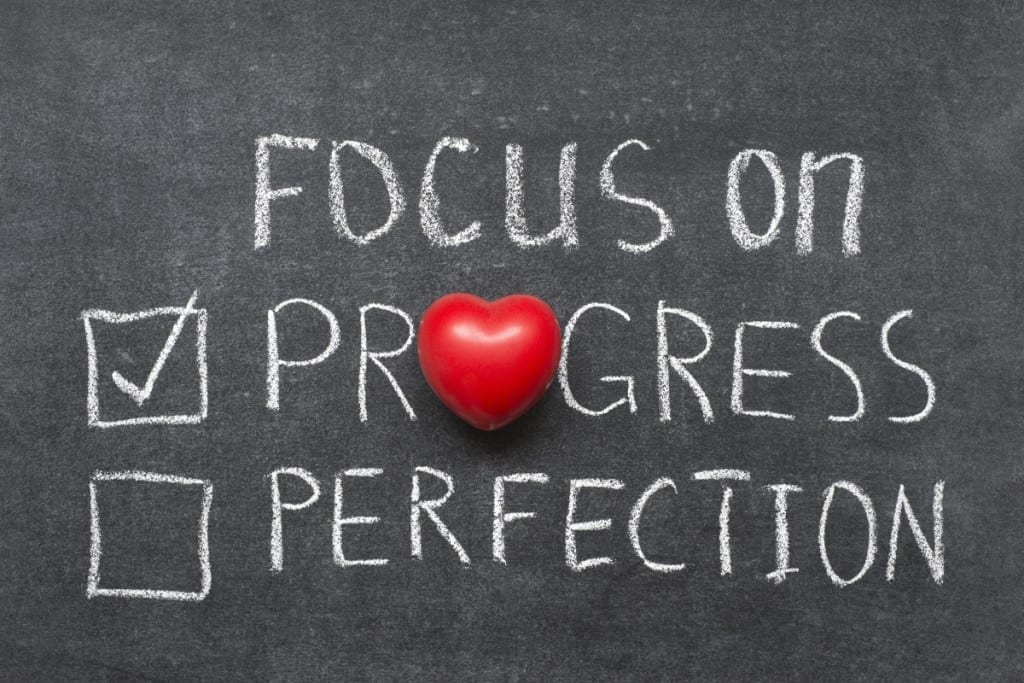Mon, 25 January 2016
For example, Sigmund Freud used cocaine to prevent fatigue. In fact, he is reputed to have written some of his most popular psychoanalytic works while under the influence. Entrepreneur and author Tim Ferriss is also known for his experiments into so-called “smart drugs”. Today, caffeine is a popular choice, used as a cognitive stimulant and is often consumed in very high doses. The widely consumed regular size Starbucks coffee contains five times the amount of caffeine of a normal coffee (Mehlman 2004). Yet another common cognitive enhancer is nicotine, most commonly ingested through inhalation. It’s been found that nicotine has the ability to improve cognition in areas such as attention, memory and motor skills (Heishman et al 2010). The reality is that most of us are not open to experimenting with unhealthy or illegal drugs to enhance our cognition. But with the aging population and increase in age-related memory deterioration, many are turning to out-of-the-box solutions (Mehlman 2004). Discovering a quick-fix pill that protects and even enhances memory would be both beneficial and exciting. This lusty market for an easy memory solution has been quickly filled with many drugs claiming to have amazing brain-boosting potential. Known as Nootropic supplements, these cognition-enhancing drugs make bold claims about their ability to increase their user’s memory. In comes science to cut through the marketing hype and give us real answers about whether these pills really work. Before we continue, here’s an important disclaimer: By offering this information in written form and by including videos of various people explaining or supporting the uses of supplements for memory, I in no way intend to validate, support or recommend the use of memory supplements. Please see your doctor before taking any substance and always, always use mnemonics. That said, if you’re ready to experience the Matrix of memory supplements, take the red pill and let’s get started.
Huperzine A
As people start to live longer, the potential for memory loss grows higher. In fact, 11% of people over the age of 65 live with Alzheimer’s. As current treatments have limited effectiveness and come with severe side-effects, scientists are scrambling to find better treatments (Guoyan 2013). In their quest, a supplement called Huperzine A has been tested for potential benefits. Huperzine A is a dietary supplement. This supplement is made from an extract of a plant called “toothed firmoss”, also known as Huperzia serrata. Toothed firmoss is native to India and Southeast Asia. In traditional eastern medical practices, it has been used to treat bruises, muscle strains, colds and to improve blood circulation. As with most cognition-enhancing supplements, firm conclusions about whether Huperzine A can enhance memory cannot be made. There are not many studies completed on the supplement, and those that have been conducted only included a small sample size (Yang et al. 2013). Nonetheless, the findings thus far seem promising. A recent 2013 research paper reviewed all available evidence on the efficacy of Huperzine A to improve or correct memory deterioration. The paper found that Huperzine A demonstrated positive effects on memory recall for those with memory issues. In some studies, Huperzine A even out-performed traditional treatments for Alzheimer’s (Yang et al. 2013). But what are the effects for younger people without formal memory impairment? A study looked at treating self-reported memory problems in otherwise healthy adolescent students. . In total, 68 students were given either a placebo or Huperzine A. After four weeks, the student who took Huperzine A showed signs of significant memory improvement, with no side effects reported (Sun et al 1999). As data on Huperzine A is still too scant, you won’t find a doctor commonly prescribing this drug just yet. What’s more, the evidence is pointing primarily to Huperzine A’s usefulness for short-term memory improvements (Yang et al. 2013). But don’t go running to the drugstore to pick up these supplements quite yet. As with any drug, it’s best to consult with your pharmacist or doctor before taking the supplement. Although Huperzine A appears to be well-tolerated in short durations, side-effects such as nauseous, epilepsy and slow heart rate have been reported. Currently, no studies have been conducted on the long-term side effects of Huperzine A.
Acetyl-L-carnitine
Acetyl-L-carnitine (ALC) is a hormone that is naturally produced in the body. Unlike many supplements and compounds, it is able to cross the brain-blood and directly affect the brain. It’s function in the body includes improving neuron cell health and preventing excessive brain cell death. For this reason, scientists have considered its potential for improving cognition and memory. However, marketers have skipped a step and have gone directly to selling the supplement as a cognitive enhancer. But does the evidence support the marketing? Not so much. A major review of the use of ALC on improving cognition in Alzheimer’s patients was performed by Cochrane Journal in 2003. It reviewed all of the studies which had investigated the effects of ALC on declining memory. The results were sobering. Many measures of cognition were tested and the review only found a slight improvement on a single measure of cognition. This measure was not directly related to memory. What’s more, the review cautioned that even this small positive effect may be due to chance (Hudson, Sheila and Naji 2003). This review casts serious doubt on ALC’s ability to improve memory, despite marketing claims. Since 2003, more studies have explored the effects of ALC on memory and cognition improvement. For example, a 2011 study analyzed ALC’s effects on those with severe hepatic encephalopathy, a disease that impacts brain function. For those assessed, the study did show some improvements in cognition including memory (Malaguarnera 2011). However, this evidence is preliminary and did not directly mirror the effect of ALC on memory. Overall, the evidence for ALC is weak. More information is needed before the cognitive benefits claimed by ALC manufacturers can actually be proven.
Phosphatidylserine
Phosphatidylserine (PS) is a naturally-occurring compound that is consumed as part of a normal diet. It can be purchased as an over-the-counter supplement in many grocery stores and pharmacies. PS is a supplement with a long history. Initially, there was great interest and many scientific studies were conducted on PS derived from cow brains. After fears of mad cow disease became more prevalent, this supplement fell out of favor (Zchut et al. 2013). https://youtu.be/ZcPFpx-WrPQ In the mid-1990s, soybean-derived PS became available. This safer alternative once again garnered attention from the scientific community (Zchut et al. 2013). So far, findings from both the cow-derived and soybean-derived PS have shown promise for improving memory. For example, in a study of over 388 cognitively-impaired older adults, PS was effective in improving word-list recall. What’s more is that positive effects have been observed for normally-aging adults. In a study of 149 normally aging adults, PS was compared against a placebo in a variety of memory tests. This study found that the PS-taking adults were better able to coordinate face recognition tests as compared to the placebo group. However, their results were comparable to the placebo-taking participants for various memory recall tests (Villardita et al 1987). Despite the appearance of a few well-designed studies demonstrating positive results, the overall picture seems less exciting. A review produced in 2003 found that the effects of PS on memory were inconsistent and modest, at best (McDaniel, Maier and Einstein 2003). In the same review however, scientists did underline that the results were positive enough to warrant further research. As a result, since 2003 more studies have been conducted. Most recently, a study published in 2014 investigated the efficacy of a omega 3/PS combo supplement on memory enhancement. They recruited 122 healthy seniors who voiced complaints about their memory (but not memory deterioration, such as dementia). After 15 weeks on the drug, the study found a significant improvement in the memory of its members. This memory improvement was identified by participants and was measured objectively through a memory test (Vakhapova 2014). A definite bonus for PS is that it seems to be a safe supplement. In the same 2003 review cited earlier, no adverse effects were reported (McDaniel, Maier and Einstein 2003). As always however, it’s best to consult with a pharmacist or physician, especially if you consume other medications or substances.
Bacopa
Bacopa is also known as Brahmi and is a natural herb in India. It is a small plant with oblong leaves and light purple flowers. It has a long history of use in Indian medicine. Traditionally, it has been used in the treatment of disorders including anxiety, intellect and poor memory. Bacopa is currently marketed in Western countries as a memory enhancing supplement. Until recently, the only published studies on the effects of Bacopa had been tested on animals. Since the early 2000s, more studies on humans have been conducted. One of the earlier human studies included 84 volunteers, who took either a placebo or Bacopa. These volunteers were healthy and between the ages of 40 to 65 (Roodenrys et al. 2002). The participants were given three months worth of Bacopa supplements (or placebo, depending on their group). They were tested on multiple occasions during these months for various tests of memory (Roodenrys et al. 2002). It was found that Bacopa-taking volunteers did not show any improvement over their placebo-taking partners on most memory tests. However, those who took Bacopa did experience a significant improvement in their ability to retain new information (Roodenrys et al. 2002). This study has been followed up by more research exhibiting positive results. For instance, a study conducted in 2008 compared the effects of Bacopa versus a placebo over 90 days. Included were 62 healthy volunteers between the ages of 18 to 60. When compared to the placebo group, takers of the Bacopa supplement saw significant improvements in their working memory performance. Much like PS, the drug was also well tolerated without many real side effects (Stough et al. 2008) With positive evidence mounting, a systematic review of Bacopa studies was published in 2012. The review pursued all randomized controlled trials on the cognitive effects of Bacopa. This meant that they only included trials with a placebo, which neither the researchers nor the patient knew about (Pase et al 2012). The results showed that Bacopa was beneficial for improving cognitive function related to attention, and especially, speed of attention. The paper suggests that Bacopa can reduce the time needed to complete a task by around 18 ms (Pase et al 2012). The researchers were hesitant to say that the evidence strongly favored Bacopa for memory improvement. Although individually, studies do show improvements in different aspects of memory, the overall significance of those effects were unclear. However, since Bacopa seems to lack any severe side-effects, it might be worth a try – with your doctor’s approval of course.
Vinpocetine
Ever see a periwinkle flower? It’s that cute flower with that dazzling blue hue. You might be surprised to hear it’s also the plant from which another commonly marketed brain-booster is derived. Vinpocetine was developed in Hungary, and is currently used in mainstream medicine. However, it’s use in medicine is not directly related to memory. Instead, it has been scientifically proven to increase blood flow to the brain (McDaniel, Maier and Einstein 2003). But can it increase the memory juice flowing through your mind? What seems to be certain is that the improved blood flow to the brain does have positive effects on overall cognition. For example, in a study conducted on dementia patients, 87% of vinpocetine patients improved – as compared to only 11% of placebo patients (Manconi et al. 1987) However, experiments on the effects of vinpocetine directly on memory are lacking. In one of the only studies looking at the effects vinpocetine on Alzheimer’s, no benefit was observed (Thal et al. 1989). Therefore, the jury is still out inasmuch as the benefits of vinpocetine are concerned. However, vinpocetine seems to have minimal risks associated with it as well.
In Conclusion
As you can see, definitive research into the link between supplements and memory enhancements is still in its infancy. Despite bold claims made by these supplement marketers, this article demonstrates that overall evidence is far from complete and decisive. The number one thing that people can do to enhance and protect memory is to follow a healthy diet and exercise regularly. However, for those looking for an edge, above and beyond diet and exercise, some of these supplements may be worth considering. As amply repeated in this article, it is very important to seek medical guidance when trying new supplements. Although most of these supplements have not shown severe side-effects, they may react with other medications. What’s more, none of these supplements have been studied for their long term effects. For all we know, these may actually lead to memory degradation with years of use. Any use of these supplements should be restricted to no more than three months at a time. At the very least, these supplements offer a fruitful field of research. There is at least enough evidence to show that these brain-boosting supplements deserve more research. It’s up to you to decide if you’d like to take part in the experiment.
Further Resources
Chan A, Remington R, Kotyla E, Lepore A, Zemianek J, Shea T “A vitamin/nutriceutical Formulation Improves Memory and Cognitive Performance in Community-Dwelling Adults without Dementia.” The journal of nutrition, health & aging 14.3 (2010): 224-30. Web. 4 Jan. 2016 Hudson, Sheila A, and Naji Tabet. “Acetyl-l-carnitine for Dementia.” Cochrane Database of Systematic Reviews Reviews (2003). Web. 4 Jan. 2016. Heishman, Stephen J., Bethea A. Kleykamp, and Edward G. Singleton. “Meta-Analysis of the Acute Effects of Nicotine and Smoking on Human Performance.” Psychopharmacology 210.4 (2010): 453–469. PMC. Web. 1 Jan. 2016. J.K. Blusztajn, U.I. Richardson, M. Liscovitch, C. Mauron, R.J. Wurtman. “Phospholipids in cellular survival and growth” I. Hanin, G.B. Ansel (Eds.), Lecithin: technological, biological, and therapeutic aspects, Plenum Press, New York (1987), p. 85 Web. 4 Jan. 2016. Mcdaniel, Mark A., Steven F. Maier, and Gilles O. Einstein. ““Brain-specific” Nutrients: A Memory Cure?” Nutrition (2003): 957-75. Web. 5 Jan. 2016. Malaguarnera, Michele, Marco Vacante, Massimo Motta, Maria Giordano, Giulia Malaguarnera, Rita Bella, Giuseppe Nunnari, Liborio Rampello, and Giovanni Pennisi. “Acetyl-L-carnitine Improves Cognitive Functions in Severe Hepatic Encephalopathy: A Randomized and Controlled Clinical Trial.” Metabolic Brain Disease Metab Brain Dis (2011): 281-89. Web. 4 Jan. 2016 Mehlman, Maxwell J. “Cognition-Enhancing Drugs.” The Milbank Quarterly 82.3 (2004): 483–506. PMC. Web. 1 Jan. 2016. Pase MP, Kean J, Sarris J, Neale C, Scholey AB, Stough C. The cognitive-enhancing effects of Bacopa monnieri: a systematic review of randomized, controlled human clinical trials. Journal of Alternative and Complementary Medicine 2012; 18(7): 647-652. [PubMed] Sun Qing-Qi, Xu Si-Sun, Pan Jian-Liang, Guo He-Ming, Cao Wang-Qi. “Huperzine-A capsules enhance memory and learning performance in 34 pairs of matched adolescent students” Acta. Pharmocol. Sun. (1999) 601-603. Web. 4 Jan. 2016. Vakhapova V, Cohen T, Richter Y, Herzog Y, Kam Y, Korczyn A, D, Phosphatidylserine Containing Omega-3 Fatty Acids May Improve Memory Abilities in Nondemented Elderly Individuals with Memory Complaints: Results from an Open-Label Extension Study. Dement Geriatr Cogn Disord 2014;38:39-45 Villardita C, Grioli S, Salmeri J, Nicoletti F, Pennisi G “Multi-centre clinical trial of brain phosphatidylserine in elderly patients with intellectual deterioration” Clin Trials J, 24 (1987), p. 84. Web. 4 Jan. 2016 Yang, Guoyan, Yuyi Wang, Jinzhou Tian, and Jian-Ping Liu. “Huperzine A for Alzheimer’s Disease: A Systematic Review and Meta-Analysis of Randomized Clinical Trials.” PLoS ONE (2013). PLOS ONE. Web. 4 Jan. 2016. Zchut, Sigalit, Yael Richter, and Yael Herzog. “The Effect of Soybean-derived Phosphatidylserine on Cognitive Performance in Elderly with Subjective Memory Complaints: A Pilot Study.” CIA Clinical Interventions in Aging (2013): 557. Web. 5 Jan. 2016. The post Can You Supercharge Your Memory With These Popular Supplements? appeared first on Magnetic Memory Method - How to Memorize With A Memory Palace.
Direct download: Can_You_Supercharge_Your_Memory_With_These_Popular_Supplements_.mp3
Category:Podcast -- posted at: 1:32pm EDT |
Thu, 21 January 2016
Eventually, he could not cope with her hallucinations and forgetfulness that often kept him up all night. When Auguste was 51, Karl placed his wife into a psychiatric institute. There, she spent the rest of her short life, eventually dying at the age of 55. Auguste is now acknowledged to be one of the most well known patients in medical history (Muller et al. 2012). The doctor who examined her, Dr. Aloysius Alzheimer, named the disease for which she is acknowledged as the first identified patient. At that time, he called it “presenile dementia,” but later his colleague Emil Kraepelin gave the condition the name by which we know it now. It’s been over 100 years since Alzheimer’s disease was first described, and yet, no cure has, as of yet, been found. However, with an increasingly aging population, it has become more pressing than ever to find effective treatments (Giacobini and Becker, 2007). In the absence of a definitive cure, this post and podcast will provide important information about Alzheimer’s. The disease can be all-consuming for those afflicted, as well as their caregivers. Understanding how it works and how to care for that person may help to relieve stress for those trying to cope.
Who Does Alzheimer’s Affect?
Alzheimer’s is a disease of old age, and generally, affects those over the age of 65. However, a rare variation of the disease, early-onset Alzheimer’s, will affect those as young as 35. The prevalence is higher in females than males, although females do tend to live longer, which may explain this trend (Keene, Montine and Kuller 2015). It’s important to realize that although Alzheimer’s affects older adults, it is not part of normal aging. Right now, the overall prevalence of Alzheimer’s is between five to seven percent throughout the population (Keene, Montine and Kuller 2015). As we age, the likelihood that we will be affected by Alzheimer’s nearly doubles every decade. That is, by the ages of 95-99, your chances of having developed Alzheimer’s increases by 50%.
What Causes Alzheimer’s?
The cause of Alzheimer’s is, as of yet, not completely understood (Ginter et al. 2015). We do know that genetics plays a role in early-onset Alzheimer’s. This form of the disease is rare, and affects people under the age of 65. What genetics fails to fully explain is the prevalence of Alzheimer’s in aging adults (Keene, Montine and Kuller 2015). The links between risk factors and Alzheimer’s have not fully been proven. However, in studies the following has show to possibly increase our risk of Alzheimer’s:
If you have a family history of dementia and Alzheimer’s, the chances of developing it yourself is much higher. People with a first-degree relative (parents or siblings) who developed dementia after 65, but before 85, have a higher risk factor. In fact, they are 10 to 30 times more likely to develop dementia themselves (Keene, Montine and Kuller 2015).
Alzheimer’s and Memory
Alzheimer’s is the most common cause of dementia, which is a degeneration of cognitive function. One of the earliest and most distinctive aspects of Alzheimer’s is its affect on memory. The first warning signs a doctor and other caregivers will look for is memory impairment (Wolk and Dickerson 2015). The patient will typically go through selective losses in short-term memory. For example, a person suffering from the early stages of Alzheimer’s may find themselves getting lost on familiar paths. They may forget recent events and repeatedly ask for the same information. It’s important to keep in mind that normal aging does accompany some memory deterioration. However, unlike normal aging, the cognitive decline associated with Alzheimer’s comes in the way of normal daily activities. The table below compares normal memory loss associated with aging to memory loss associated with Alzheimer’s (Leifer 2006).
Family members may notice these types of memory declines and others, such as repeatedly asking for the same piece of information. As the disease progresses, memory becomes severely affected. Memories of the person’s life are impacted. A patient will forget important life events, occurring at a particular time and place early on in their disease (Wolk and Dickerson 2015). Moreover, factual memory, such as the words used for objects and concepts, deteriorates as time goes on. A doctor may test memory by asking patients to learn and recall a series of words or objects. Recall is asked for both immediately and at a delay of five to ten minutes. They may also ask them about important historical events or artifacts in popular culture (Wolk and Dickerson 2015). The brain of a normally aging person will compensate for the memory loss due to normal aging. The cognitive decline of a normally aging brain will not be severe enough to affect their ability to complete everyday tasks. Nor will the cognitive decline affect a person’s ability to live independently (Wolk and Dickerson 2015). However, a brain with Alzheimer’s will decline quickly. This can vary, but the average survival rate after diagnosis is between eight and ten years. Some survive for as long as 20 years after the diagnosis (Wolk and Dickerson 2015).
What Alzheimer’s Looks Like
As Alzheimer’s progresses, the afflicted person will become more and more disoriented. Alzheimer’s patients will increasingly be unable to:
As the disease progresses into later stages, the person will start to exhibit more personality and emotional changes. These can be particularly stressful. They may include:
These changes might be due to chemical imbalances in the brain. They may also be due to the individual’s increasing fear and confusion because they do not understand their own surroundings. Eventually, an Alzheimer’s patient will literally forget the more fundamental tasks, such as how to move. They will become immobilized and require assistance for bathing, eating and dressing.
Treatment options
There is no cure for Alzheimer’s. Current drug treatments only slow the disease in the short-term, for no longer than a year. However, for patients with early stages of the disease, medications can improve their cognitive function. These benefits may need to be weighed against the medication’s side-effects as the disease progresses. In addition to medication, there are behavioral treatments available. For example, speech therapy can be combined with medication to help patients with troubles in this domain. Caring for an Alzheimer’s Patient
Caring for people afflicted with Alzheimer’s is a very cumbersome task, and difficulties range from financial to emotional stress. In a study carried out in the UK, nearly two-thirds of people caring for Alzheimer’s patients were family members (Beinart et al. 2012). When dealing with Alzeheimer’s, it’s important to seek support from extended family members, friends and your community. Ask your doctor to refer you to a local chapter of the Alzheimer’s Association. Many changes will need to occur in an afflicted person’s home and life due Alzheimer’s. They will likely be unable to drive, and will need monitoring and help with basic tasks. These include things such as cooking and taking medications (Alexander and Larson, 2015). Other tips for helping people with Alzheimer’s include:
In the mid-to-late stages of the disease, it may become impossible to care for the person at home. They may require skilled health care attention and placing the patient in a nursing home may be the best option. Most importantly, remember that as a caregiver, you require care as well. Using respite services, such as adult day care and hiring home aides when possible is a great way to recharge. Caring for a person with Alzheimer’s is a marathon, not a sprint. You need to ensure that your mental and physical health is tended to. Emotionally and mentally, it’s important to try to focus on the positive. Try to enjoy the remaining qualities and activities with your relative instead of only remembering what you’ve lost. Remind yourself that you are doing your best in moments when you feel overwhelming guilt or fatigue.
Future Hope for Alzheimer’s Disease
Alzheimer’s disease is a tragic sickness, and poses an enormous financial burden on society at large. Paying to care for patients with dementia and Alzheimer’s is predicted to cost 1.2 trillion dollars by 2050. The good news is that there is increasing evidence that Alzheimer’s may be more of a lifestyle disease than previously acknowledged. Except for rare cases of early-onset Alzheimer’s, which have a strong genetic component, lifestyle may determine your likelihood of developing it. That is, maintaining a healthy diet and doing regular exercise can decrease your chances of developing Alzheimer’s. Due to the strong link between blood-sugar levels, some scientists have even started calling Alzheimer’s “Type 3 Diabetes” (De la Monte and Wands, 2008). Not everything in life is within our control. However, living a healthy and balanced life are ways to counteract the effects on cognitive function, especially as we age. For our purposes, the question is …
Can Mnemonics And Memory Palaces Help?
It’s too soon to tell, but I highly recommend watching this TEDTalk with Kasper Bormans for an introduction to what might be possible:
Nelson Dellis spoke on the Magnetic Memory Method Podcast about his experiences with Alzheimer’s and his efforts to combat the condition. Check out Extreme Memory Improvement to learn more. These memory tips from Dr. Gary Small may not be the ultimate prevention against Alzheimer’s, but they are going to serve you well. Give it a listen. I recommend subscribing to Preserving Your Memory Magazine, put out by the Fisher Center For Alzheimer’s Research. And for more information, follow-up on the following articles: Alexander, M., Larson, E. B., Patient information: Dementia (including Alzheimer disease) (Beyond the Basics) Up To Date (2015). Online. Beinart, N. Weinman, J., Wade, D., & Brady, R. “Caregiver Burden and Psychoeducational Interventions in Alzheimer’s Disease: A Review.” Dementia and Geriatric Cognitive Disorders EXTRA 2.1 (2012): 638–648. PMC. Web. 15 Jan. 2016. De la Monte, Suzanne M., and Jack R. Wands. “Alzheimer’s Disease Is Type 3 Diabetes–Evidence Reviewed.” Journal of diabetes science and technology (Online) 2.6 (2008): 1101–1113. Print. Keene, C. D., Montine, T. J., Kuller, L., H. “Epidemiology, pathology, and pathogenesis of Alzheimer disease” Up To Date (2015). Online. Müller, Ulrich, Pia Winter, and Manuel B Graeber. “A Presenilin 1 Mutation in the First Case of Alzheimer’s Disease.” The Lancet Neurology (2012): 129-30. The Lancet. The Lancet. Web. 13 Jan. 2016. Leifer, B. P. “Alzheimer’s disease: Seeing the signs early.” Journal of the American Academy of Nurse Practitioners(2009) 21: 588–595 Web. 13 Jan 2016 Ginter, E., V. Simko, D. Weinrebova, and Z. Ladecka. “Novel Potential for the Management of Alzheimer Disease.” Bratislava Medical Journal BLL (2015): 580-81. Online. Giacobini, E and Becker, RE. One hundred years after the discovery of Alzheimer’s disease. A turning point for therapy? J Alzheimers Dis (2015): 12, 37-52 Wolk, D. A., Dickerson, B. C. “Clinical features and diagnosis of Alzheimer disease” Up To Date (2015). Online. The post 3 Things To Remember About Alzheimer’s And Memory appeared first on Magnetic Memory Method - How to Memorize With A Memory Palace.
Direct download: 3_Things_To_Remember_About_Alzheimers_And_Memory.mp3
Category:Podcast -- posted at: 4:03am EDT |
Thu, 14 January 2016
Or how about the ability to quit your job and do whatever you like for the rest of your career? Well … I’m not sure I can help you with that. But what I can do is give you some tips on how to live an interesting life. Here are six of them: 1. Be The Driver Of Your Education
There are two main forms of education: * External Driven * Self Driven The first is the kind of education where you show up when you’re told and sit where you’re told. You even eat when you’re told. Sounds kind of like prison, doesn’t it?
Prison? It Might Even Be Worse!
Not only do you have all kinds of pressures on your time. You’ve got people telling you what to learn. Think about that: What. To. Learn. Oh no, no, no. No and a thousand times no. That’s not the path to an interesting life. What you want instead is to …
Be The Boss And Manager Of Your Own Intelligence
Let me tell you a story: I dropped out of high school in Grade 12. There’s a lot of detail surrounding this decision and some of it ain’t pretty. But sticking to the facts (and just the facts), I thought school was such a drag that I decided to stay home and read Collier’s Encyclopedia.
Each morning I would leave home. But instead of getting the battered yellow school bus into town, I would hike up into the mountains. For months I experienced the Fall transform into Winter and then Spring from up above the highway where I would wait for my mom’s car to pass by. It sounds like something out of Hitchcock’s Psycho, I know, but as I was watching the highway waiting for mom to go to work, I was listening and learning. No, not listening to Heavy Metal. Not pop. Not even soft rock. Instead, I was listening to the CBC on my fat yellow Walkman. At that time, Peter Gzowski, a.k.a. Mr. Canada, was the host of Morningside. Over the course of the year, I got virtually a Ph.D. in Canadian culture, history, politics, literature and the arts. I also heard interviews with important people from around the world. True, a bear might have mauled me while I was up there, and I did have a few close encounters with moose and deer. But the danger was worth it. And after a few hours of Morningside, I would head down the mountain and make hot chocolate. With a steaming cup beside me on the coffee table, I would sit in the same rocking chair I was nursed in and read the Encyclopedia. It was like being nursed all over again, this time by the knowledge my parents had invested in when they ordered the Encylopedia one volume at a time. These days we have Wikipedia, but back then, if you wanted to know about the world, it cost a lot of money. I remember my mom talking about saving for the Encyclopedia year after year. She cut dozens of coupons from the newspaper so she could save more and complete the set. It took about three years and after that, she kept up with the yearly updates for at least another three. And this was all before I was old enough to read anything more complicated than Roald Dahl’s Charlie and the Chocolate Factory. (Come to think of it, that story is rather complex …) It was a lot of fun reading through Collier’s Encyclopedia. And educational. When I finally did return to complete high school, I knew so much about the world that …
School Was EVEN MORE Boring!
But that was fine. Because I knew about all kinds of books I wanted to read. So whenever I could, I would still skip school and take out a notebook I’d kept and look for all the books I’d learned about in Collier’s. I would go to the Kamloops Public Library and check them out. While everyone else was spending weeks struggling through A Separate Peace by John Knowles, I was reading:
* The Stranger by Albert Camus * 1984 and Animal Farm by George Orwell * Demian by Herman Hesse * The Metamorphosis by Franz Kafka * Crime and Punishment by Fyodor Dostoyevski … and much, much more. The point of all this is that I was practicing, without even realizing it, the art of self-driven education. Of course, I’m not suggesting that anyone quit school, skip school or do anything like that … But I am suggesting that you won’t get nearly as intelligent as you deserve to be if you learn only what you’re told.
So What Can You Do?
If you’re told to read a Shakespeare play, read the play and follow it up by reading another. Or look up a book about Shakespeare and read a play by one of his contemporaries (I recommend the zany John Webster). If you find math difficult and boring, find a book on mathematics that has mostly words. See if you can tackle the idea of math from another angle. Khan Academy has math courses you can take as well, something I couldn’t enjoy. But you can. And when you find an author or an online teacher you like, stick with them. You can learn a lot by seeing how people develop over time. You’ll also learn a lot about successful people, which brings us to …
2. Reverse-Engineer People You Admire(Just So Long As They Aren’t Creepy Weirdos Or Serial Killers)
The world is filled with people who have either lived or are living exciting lives. That doesn’t mean they led easy lives. There’s no such thing and living without challenges would probably be even more tedious than high school. What you want to look for when studying the biographies of other lives are: * How they explained their desires, goals and wishes * What actions they took to do great things * How they coped with suffering * What they did to keep themselves expanding * How they dealt with their historical circumstances * Who they knew and what they did with their friendships and relationships There’s so much more to pay attention to, but these are a good start.
Why Do This?
Because life starts to get serious when you act and think about who you are and what you want to do. And to truly develop a unique profile and create the space needed in your mind to become whoever it is you’re going to become …
You Need The Ability To Think And Feel The Ideals And Sorrows Of Others And Dream Up Your Preferred Version Of The World So You Can Make It Real
When you study others, you’ll experience a diversity of ideas that will train you to pay attention to what everyone around you is doing. It will also help you get past the negative habit so many have of rejecting differences. Remember, there are no differences as such. Everything is part of the world. And as long as that is true, everything in the world is part of you. And that means everything and everyone applies to you and your life. If you don’t like reading or care to develop a re-reading strategy, you can also watch biographies. And for a super-interesting exercise, you can pick a single actor and watch as many films starring that person as possible in chronological order. You can choose actors who are good at portraying different characteristics and actors who just seem to be playing themselves over and over. Either way, you’ll notice patterns of consistency and difference. And like a wine expert, you’ll start experiencing all kinds of different shades of flavor you never noticed before. Next, move from hanging out with books and movies to …
3. Toss Social Inertia From Your Life Forever
Whether you’re an introvert or extrovert, it’s easy to fall into the trap of seeing the same people all the time. That’s no way to revolutionize your life and keep it revolutionizing. So as you’re finding interesting biographies and adapting ideas to your life, HUNT for advanced people with whom you can share an environment. (But not in a creepy way …) Find the people who have the characteristics you want and enter their circles. Don’t be creepy about it. Just identify someone and ask if you can have 20 minutes of their time to ask some questions. Then ask them who else you should talk to continue your education. Do this and you’ll have an unending stream of new contacts and interesting people around you. As a result, you’ll experience SO MUCH MORE in your life. And you’ll always have interesting things to say to the new people you continue to meet. Plus, if you visit these people in their homes, you instantly have more Memory Palaces. You can also meet them in cafes or restaurants you’ve never visited to increase your awareness of your city and its offerings. All this will help you develop …
4. The Most Important Skills In The World
Communication, for example. There’s no point in being more interesting if you’re no good at speaking. At some point, you’ve got to learn to control how words come out of your mouth. You get that practice by … (gasp!) speaking with people. You can also attend Toastmasters meetings, start a podcast, speak your mind on YouTube and develop yourself as a writer. To get good at writing, start with the high school newspaper, writing letters to the editor, regularly updating a blog or just by posting on Facebook to explore your ideas. By studying all those successful people and learning to communicate with them, you’ll also be orienting on success. This will help ensure that your life isn’t controlled by external circumstances. You won’t fall prey to the strange idea that certain times are good and particular periods of history are bad. Here’s the only thing about time you need to now:
Times Change …
Your job is to adjust. To be flexible. To be adaptive. To be agile, aware and if necessary, defensive. Above all, you want to develop awareness of everything around you that you possibly can. Because at the end of the day … The way you succeed has little to do with the ways of the world. It has to do with how you react to the way the world changes. And you always want to ask … What advantage can I take of the present state of change? It’s a compelling question and the best way to prepare for the times when you’ll need to ask it is to …
5. Live Like A Scientist
Scientific living means being measurable. You can measure everything down to what you do to be productive and make good use of your timeTOR’s Post, to measuring your testosterone levels. Measuring your activities will help you see where you’re strong and where you need to improve. The best part is that, because you’re studying so many other people, you’ll see how you can do more of what works, and how you can do things differently. Track everything in a journal, diary, Google Spreadsheet, in Evernote or whatever you prefer. Use whatever tool makes it easy for you to see where you are, where you’ve been and where you’re going. By doing this, you can develop processes and systems for your life. For example, I have systems that tick along no matter what happens on CNN: * Writing every day * Putting out a weekly podcast * Emailing Magnetic Memory Method members 1-2 hours a day * Theatre group once a week (when in season) * Other regular courses * Monday and Friday mornings at the gym And the best part of all this activity and tracking is that …
It’s Easy To See The Holes In The System
For example, my activities are all fine and dandy, but looking them over, it’s clear to me that I’m missing out on music. Now I know that I’ve got to schedule more time for my memorize Bach on bass habit. Popping Bach into my memory used to be a huge part of my week, and now it’s faded almost to nil. The important point here is that you want to develop “sticktoitiveness.” The ability to stick to it is pure gold. So many of us (including me) get so distracted by the next bright shiny object that we need systems to keep ourselves on track. Sticking with the program is important because without consistency, we never wind up doing anything long enough to see results. And at the end of the day …
It’s All About The Results
That’s why it’s so important to stop and check in with yourself and your stats. And stop searching for the easy path. That’s one of the quickest ways to fail. In reality, finishing a course you’ve started or completing a project from beginning to end IS the easiest way to get from point A-Z. Success happens when you bring precise implementation to the game. I’m talking about dedicated practice, which is as true to memory development as it is to any task. Stick with whatever you’re doing. Experiment with it. Study every angle and explore every corner. Do that and you won’t need memory techniques. The stones will be set and the things you’ve learned will be impossible to forget. Finally, there is one point that rules supreme:
6. Have Confidence In Yourself
Not only do you need to have confidence in yourself. You need to have confidence in the things you’re doing. This is why, for example, completing courses and finishing books you’ve started is so critical. We live in memory. We thrive or fail by what we’ve done in the past. The more good things we’ve done, the more positive experiences we have to build upon. That said, if you have weaknesses in your past, perhaps even terrible experiences …
There Is No Reason To Let The Darkness Control Your Future
If you just make the shifts needed to put yourself in alignment with others, your unique desires and the habits and patterns needed to achieve success, all the pieces will fall together. You’ll see the patterns you noted in the lives of others emerge in your own life. You won’t let yourself get bullied out of accomplishing your dreams. You’ll be a transformer. An influencer. A true human being who cannot help but live an interesting life.
Further Resources How To Improve Concentration And Memory Buddha-Style The post How To Live An Interesting Life appeared first on Magnetic Memory Method - How to Memorize With A Memory Palace. |
Thu, 7 January 2016
Why? Because there are few things more frustrating than not knowing how to improve concentration! Well, okay, there’s also the frustration of forgetting important details. Especially when you’re in the middle of something as important as recalling a person’s name, an important fact, or even a hilarious joke. Or worse: When you’ve prepared the perfect anecdote, yet, you can’t retrieve the single most important part from your memory. Here’s where the real frustration sets in: You can remember the newspaper where you read the information. You can even remember the look of the page where the information was found, including images and other small details. And yet, in your mind’s eye …
That One Piece Of Information Is Painfully Out Of Reach!
Don’t worry. You’re not losing your memory. Your inability to remember is likely related to the level of concentration you used at the time you read the passage. This is because concentration is key to memory recall. (In case you want to look it up on Wikipedia, concentration is also known by the slightly less sexy term, “attentional control.”) And how to meditate for improving concentration and memory is exactly what you’ll learn in this post. But first, a demonstration of just how easy it is to sit and meditate: And now, an important question:
What Exactly Is Concentration?
Good question, especially when it comes to memory. Why? Because concentration is necessary for creating complete memories. Lack of attention to detail leads to difficulty remembering crucial and important pieces of information. Although having excellent concentration may not necessarily lead to better memory, concentration is essential to well-formed and useful recall of information. But in a time with so much valuable information at our fingertips, there are more barriers for our concentration than ever. The notification-saturated world of the the internet constantly attacks our focus. This reality has led some teachers to worry that students are growing up with decreased attention spans. Thankfully, there is a powerful and scientifically proven method to improving concentration using meditation for concentration and memory. What’s more, this method has been practiced for thousands of years. Best of all, it’s a simple practice anyone can take up, at no cost, with no fancy equipment, and no extensive training. |
The Magnetic Memory Method Podcast

Categories
generalMemory Improvement Tools
Memory Method Tips
Brain Exercises for Memory Improvement
Memory Improvement Case Studies
Podcast
Guest Post
Memory Palace Tactics
Practical Memory Techniques
Uncategorized
Improve Memory Q&A
Archives
AprilMarch
February
January
December
November
October
September
August
July
June
May
April
March
February
January
December
November
October
September
August
July
June
May
April
March
February
January
December
November
October
September
August
July
June
May
April
March
February
January
December
November
October
September
August
July
June
May
April
March
February
January
December
November
October
September
August
June
May
April
March
February
January
December
November
October
September
August
July
June
May
April
March
February
January
December
November
October
September
August
July
June
May
April
March
February
January
December
November
October
September
August
July
June
May
April
March
February
January
December
November
October
September
August
July
June
May
April
March
February
January
December
November
October
September
August
July
June
May
April
March
February
January
December
November
September
| S | M | T | W | T | F | S |
|---|---|---|---|---|---|---|
| 1 | 2 | |||||
| 3 | 4 | 5 | 6 | 7 | 8 | 9 |
| 10 | 11 | 12 | 13 | 14 | 15 | 16 |
| 17 | 18 | 19 | 20 | 21 | 22 | 23 |
| 24 | 25 | 26 | 27 | 28 | 29 | 30 |
| 31 | ||||||
Syndication

 Supplements, both legal and illegal, have been used for centuries to enhance cognitive performance.
Supplements, both legal and illegal, have been used for centuries to enhance cognitive performance.


 How would you like permission to skip school for the rest of your life as a student?
How would you like permission to skip school for the rest of your life as a student?




 If you’re looking for how to improve concentration and memory, this may be the most important blog post you ever read.
If you’re looking for how to improve concentration and memory, this may be the most important blog post you ever read.




